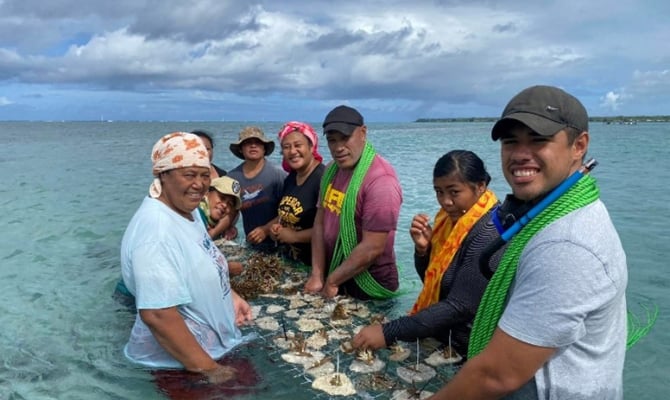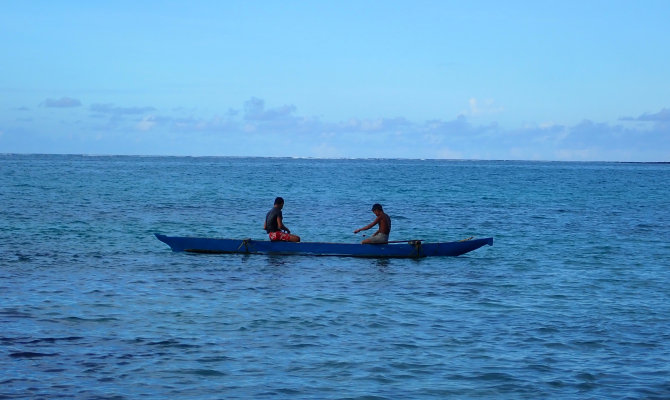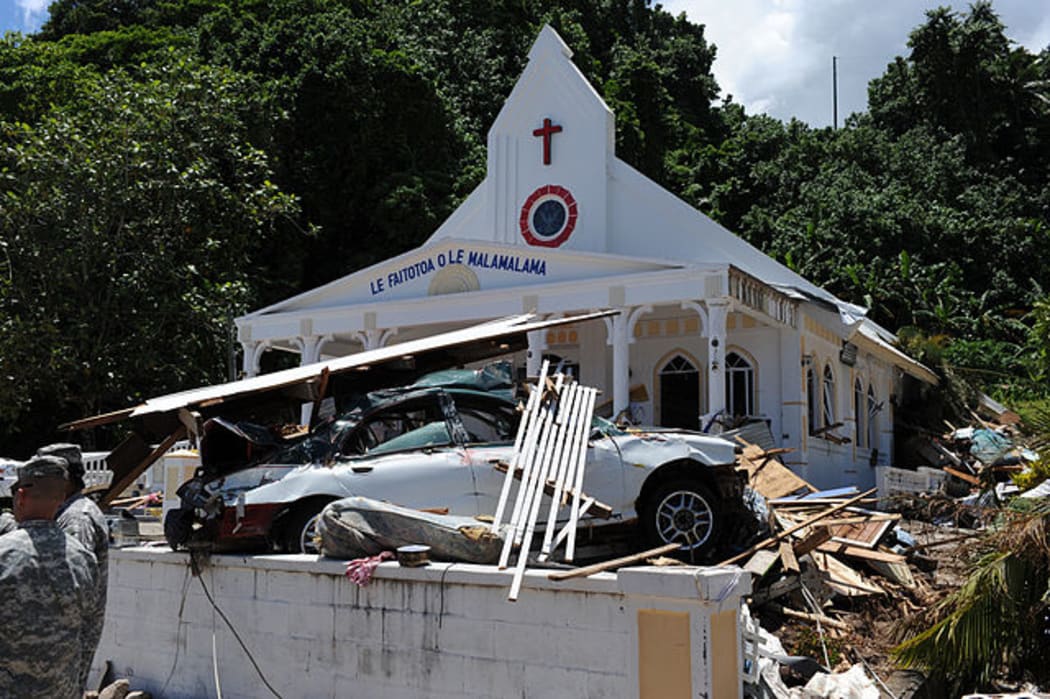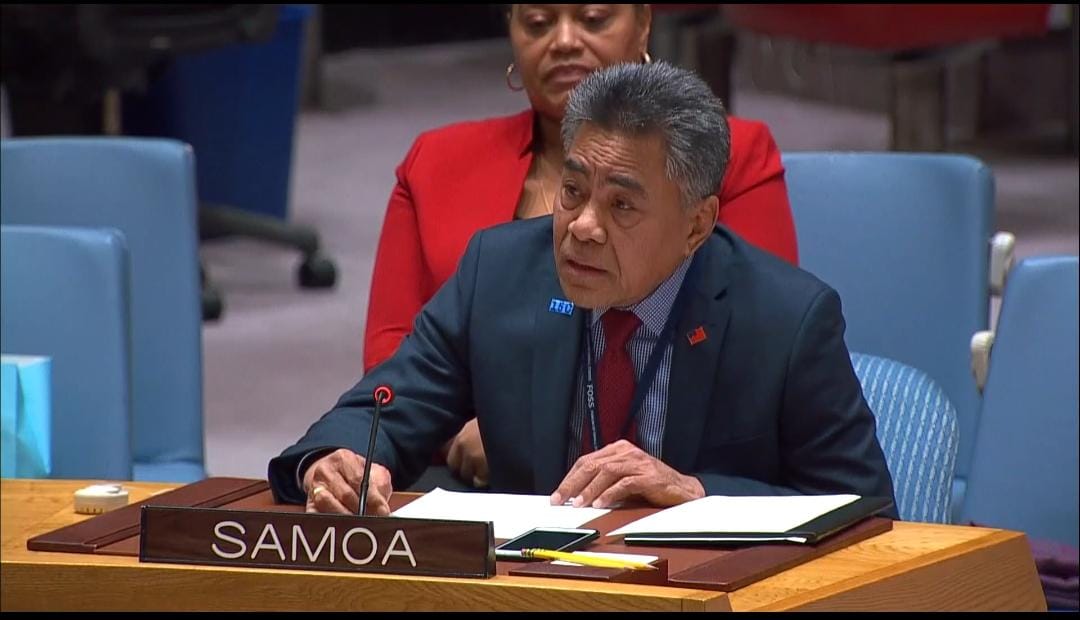Marine ecosystem rehabilitation to support the enhancement of the marine ecosystems to combat the impacts of climate change for five villages in Samoa
The impacts of climate change on our oceans and especially coastal areas that support Pacific livelihoods is a concern to many coastal communities. The rate of Sea level rise and storm surges affecting shoreline retreat, marine heatwaves near the coastal waters of Samoa are some of the impacts that communities are already facing.
Ocean acidification is also a big concern and will affect the health of corals, shellfish, marine vegetation such as seagrass (food source for many marine organisms). These are some the concerns faced by the five communities and solutions were discussed on how to support the enhancement of the marine ecosystems to combat the impacts of climate change.
Over the past two weeks, the Secretariat of the Pacific Regional Environment Programme (SPREP) in partnership with the Ministry of Natural Resources and Environment (MNRE) and the Ministry of Agriculture and Fisheries (MAF) carried out rehabilitation activities to enhance marine ecosystems in five sites, Sale’aula, Sato’alepai, Saipipi, Siutu and Vaito’omuli in Savaii, Samoa.
The rehabilitation activities were supported by the Pacific Adaptation to Climate Change and Resilience Building (PACRES) Project, in a joint effort with the Pacific Partnership on Ocean Acidification with the aim to develop baseline information on key marine ecosystems.
Through community consultations, the project, supported the five communities in implementing ecosystem-based adaptation (EbA) options to combat the impacts of climate change on marine ecosystems, specifically focusing on the replanting and restoration of coral reefs and mangroves, all in an effort to rehabilitate and protect the targeted communities’ shorelines and improve the richness of their marine ecosystems.
The local communities were supportive of the initiative and were interested to learn more on how to adapt to climate change through rehabilitating their marine environment. Women’s committee representatives, young women and the young men engaged well through coral gardening and mangrove planting when they were given the opportunity to put into practice what they had learned such as attaching coral fragments onto table nurseries.
The communities will provide monitoring and care of the nursery with the guidance and technical support from SPREP, MNRE and MAF until such time when they are planted in permanent location to replace corals that have been affected. This process will take at least 6 months.
This story was written by Christine Tuioti, originally published at SPREP on 04 July 2022, reposted via PACNEWS.




